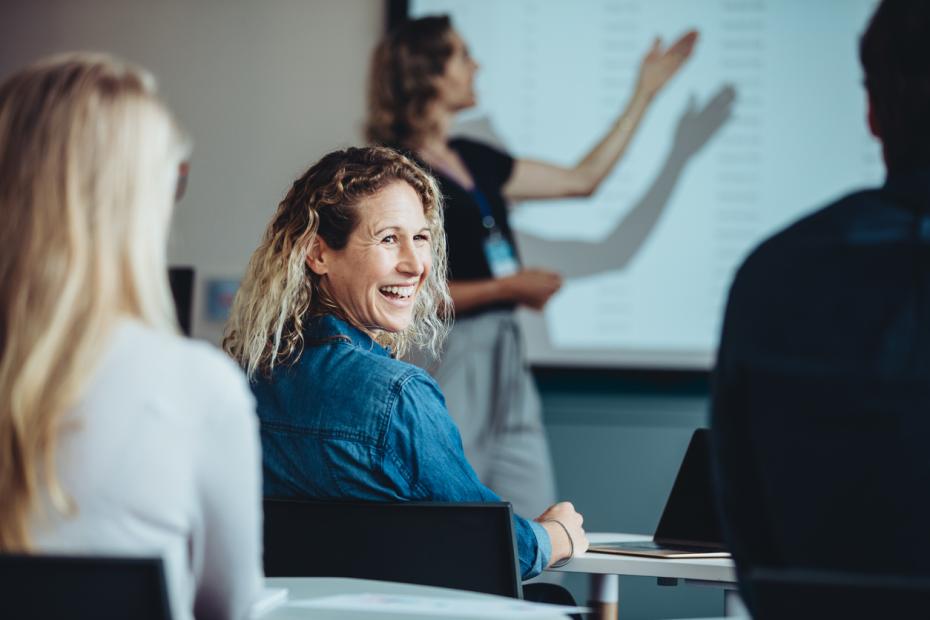
Peer review as a collegial approach to educator development
Expert support, structured reflection and near-peer dialogue can replace compliance and evaluation as a way to improve teaching practice. This practical framework aims to turn conversation into action

University educators are facing mounting pressures – due to factors that range from the rise of AI to lingering post-pandemic fatigue. Faculty are expected to adapt to new teaching technologies, redesign curricula and meet institutional goals, all while managing increased workloads and shifting student expectations. In this context, there is a clear need for professional development that supports the enhancement of teaching capability through structured reflection, targeted feedback and applied learning – rather than compliance-driven review or informal mentoring alone.
- Synchronous communication strategies for a successful learning design partnership
- Why is collegiality crucial and how can we foster it?
- Why we should be humans first and academics second
An effective route to professional development is peer review – not as a compliance mechanism but as a structured approach to improving teaching practice. By combining expert mentorship, guided reflection templates aligned with teaching and learning resources, and structured peer support, the Reflective Peer Teaching Development (RPTD) programme – piloted in 2024 and now implemented at Deakin University in Australia – supports educators in building practical skills and strengthening their teaching capability.
From evaluation to capability building
Many peer-review models in higher education focus either on evaluation and accountability or on professional learning, but rarely both – limiting their long-term effectiveness. Development-focused models such as collaborative peer-observation circles often support reflection but may lack structure, expert guidance or clear links to institutional teaching goals.
The RPTD programme addresses this gap by combining Lily Min Zeng’s developmental review continuum and Puspha Sinnayah et al’s cyclical peer observation. It adds expert-led masterclasses, guided self-evaluation and alignment with Deakin’s teaching and learning frameworks to ensure that peer feedback directly contributes to building teaching capability and improving practice in meaningful ways.
How reflective peer teaching development works
The programme runs over a 12-week semester and guides educators through stages of peer collaboration, expert mentorship and self-directed growth. It’s flexible and tailored, rather than a one-size-fits-all approach. Its three streams are:
- Focused peer support: Educators work in pairs, sharing observations and feedback in a low-stakes, collegial setting. Guided by reflection templates, these peer partnerships focus on practical teaching strategies and mutual learning.
- Masterclasses: This stream combines expert-led mentorship, participant-informed masterclasses, which cover topics such as assessment design, inclusion and digital engagement, and evidence-based resources aligned with institutional teaching and learning priorities.
- Self-evaluative: Participants complete a guided self-evaluation. Using tailored templates and feedback from peers and experts, they reflect on what aspects of their practice may need improvement and how they plan to refine them in the future.
Across all three streams, participants focus on areas such as student engagement, feedback practices, teaching tools and accessibility.
Masterclasses that turn reflection into action
The programme’s masterclasses are not your typical sit-and-listen sessions. The two-hour workshops are shaped by what educators say they like to develop. Before the programme begins, participants complete a short needs analysis, which directly informs the content of the masterclasses.
Facilitated by experienced educators, the sessions are practical and hands on, and bridge the gap between reflection and action. The aim is to help educators think about their practice and actively evolve it.
Peer support and reflective templates that make conversations count
The programme offers a supportive take on peer observation. Instead of being observed by a manager or reviewed for performance, participants are paired with a peer to exchange honest feedback in a safe, collegial space.
To guide these conversations, structured reflection templates detail thoughtful prompts, questions and icebreakers to help peers connect and get the dialogue flowing. These templates focus on key teaching themes such as feedback, inclusion and student engagement – and every question is carefully aligned with the university’s teaching priorities and professional standards.
The result? The programme starts conversations that go beyond surface-level comments and into meaningful insights about what’s working, what could improve and how to make changes that matter. It’s about learning together, not alone.
Professional growth that aligns with the bigger picture
The programme connects personal development with the university’s bigger goals. It’s not just about improving an individual’s teaching skills – it’s about contributing to a wider culture of educational excellence.
The templates, peer discussions and even masterclass content are aligned with the university’s teaching frameworks and design principles. And this reminds educators that what they do in the classroom connects to something much larger.
A model focused on capability and impact
As universities continue to respond to evolving educational demands, professional development is most effective when it is practical, relevant and clearly aligned with teaching improvement. The RPTD model offers a structured, evidence-informed approach that prioritises feedback, reflection and skill development over compliance or evaluation.
By integrating expert-led masterclasses, guided peer support and targeted professional learning, the programme enables educators to refine their practice, address teaching challenges and build capability in line with institutional priorities. It’s a model that other institutions might benefit from considering as they seek to strengthen teaching quality and support ongoing academic development.
Hasti Abbasi is a senior lecturer in learning futures at Deakin Learning Futures at Deakin University, Australia. Barbie Panther, director of Teaching Capability & Innovation at Deakin Learning Futures, contributed to this article.
If you would like advice and insight from academics and university staff delivered direct to your inbox each week, sign up for the Campus newsletter.


